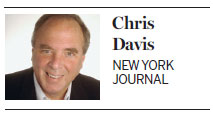It's been 2,500 years since the great sage of China, Confucius, wandered from town to town trying to help heal troubled and violent times by laying the groundwork for a philosophy that would transform East Asia.
"Confucius may be the greatest teacher in human history," writes China-based author Michael Schuman in his new book Confucius: And the World He Created (Basic Books, 2015). Today, his teachings shape the daily lives of 1.6 billion people. Even as Western ideologies such as Christianity and Communism poured over the region, Confucian doctrine has remained the underpinning and scaffolding of East Asian culture.
Over the centuries, however, the teacher's body of work has been conscripted, embroidered and edited for various purposes. "His teachings have been so twisted and distorted by centuries of self-interested emperors, scholars, and officials that in some cases they have deviated drastically from the sage's own positions and gotten him attacked for things he never advocated and would never support," Schuman writes.
In the 19th century, Confucianism and its tenets of hard work, thrift, knowing one's place and staying there, unwavering respect for authority, and concern for the community always trumping an individual's concerns, were often blamed for China's resistance to change and reform. Risk-taking, experimentation and the individualism that spur innovation and capitalism was not encouraged.

Confucius has also taken heat for promoting the inequality of women.
Confucianism was further used to justify often harsh authoritarian rule. But, as Schuman writes, "Holding Confucius responsible for all of the wrongs committed in his name is akin, then, to blaming Muhammad for the 9/11 terror attacks, or Jesus for the Spanish Inquisition."
Like Jesus and the West's other great philosopher, Socrates, Confucius' ("probably") never actually wrote down his philosophy, but rather left the scribbling to his gaggle of disciples, a delegation of responsibility that in itself can lead to misinterpretation and inaccuracy. The first major biography on him wasn't attempted until 350 years after his death, which came in 479 BC at the age of 73.
Most of what Confucius himself studied were writings that in 500 BC were already considered ancient. He looked back on the past as a Golden Age that could only be recovered if rulers followed his advice, which never really happened in his lifetime, and wouldn't for centuries after his death.
It was with the Han Dynasty in 206 BC that Confucianism really began to take root in China. The Confucians did a great job of marketing their philosophy to the Han court by showing them that the reason their predecessor, the Qin, failed was because they neglected to heed one of the core principles of Confucian thought: moral power trumps physical power.
Personal details from the main Confucian text - the Analects - help bring the sage to life and make for some of the best reading in Schuman's book. As a smart dresser, Confucius "avoided using dark purple and maroon colored silk for lapels and cuffs".
As an eater, he was as persnickety as a cat: "He did not eat food that was not properly prepared nor did he eat unless the proper sauce was available," and perhaps a bit obsessive-compulsive: "He did not sit, unless his mat was straight."
Manners were of paramount importance to Confucius and he had a short fuse for anyone who flouted them. Confucius once came upon a young man who was sitting improperly, with his legs spread wide apart. Confucius said: "To be neither modest nor deferential while young - that is what I call a pest," and then smacked the kid on the shin with his cane.
In an interview with the Wall Street Journal, Schuman was asked what answers could be found in Confucianism for persistent problems in the West, such as wealth disparity and a failing educational system.
"Many Confucian ideals are timeless and universal," Schuman said. "Confucius believed that government had the responsibility to care for the well-being of all of its citizens (and later) advocated for egalitarian economic policies that redistributed wealth. On education, Confucius believed that learning was an essential practice for self-improvement."
Schuman, who has been a correspondent for Time magazine and the Wall Street Journal and whose Korean wife is a self-proclaimed Confucian, said he went into the 10-year-long book project with "a very negative, but I think very common, perception of Confucius - that he was an arch-conservative who supported dictators and wanted women to be barefoot and pregnant."
But in his research he came to see the sage as someone who advocated benevolence from the top down in return for duty and devotion.
"By the end of my study, I became convinced that East Asia - and the world overall - is better off with Confucius in it," he said.
Contact the writer at: chrisdavis@chinadailyusa.com.